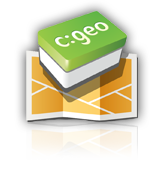Groundspeak responds about C:geo
I have heard a number of people complain that groundspeak personally is working to destroy other apps. Especially with this change in maps. It has bugged me because with my work as a moderator, and reviewer, Groundspeak has never mentioned doing anything to hurt another program. Even in the day when they asked me to moderate and pull non-geocaching.comapps out of forum listing. They were more worried about internal affairs then the work of others.
Today tBryan at groundspeak posted this note to C:geo
Some may not have seen this in the comments so I thought I would post it. From SammyHP
I'm one of the core developers of c:geo. We talked several times with Groundspeak about the API but there are some reasons why we don't use it currently:
Why c:geo is not using Groundspeak's public API
Let us answer this once and for all in one place. But let's start with basics.
There is very simple reason why us and GC.com can't sync. We are FREE, opensource application, they are corporation. We give our software for no money, they would like to make a big profit with a service. They don't like what we do, we don't like what they do. It's like fire & water, cat & dog, hell & heaven....
The initial idea of c:geo is to provide a free (and open-source) app for mobile geocaching for everybody.What would change with the API?
- c:geo only for premium members
- no support for OpenCaching or other platforms than gc.com
- Groundspeak-adsAlso there are problems with development:
- development would take 2-4 months to implement the API
- during this time there would be only access to a testing-server, no nightly-builds
- devs are using the development-build for caching
- the API requires a private key for the app. But c:geo is open-source. There are a lot of independent developers, but only one would get the key - all other developers wouldn't be able to test what they do
- c:geo no longer open-source
- only few core-developers
- much slower developmentThe Groundspeak's "public" API would fix most of our current problems, however c:geo would then force users to pay money to a corporation. This is not the opensource spirit.
If the Groundspeak says OK to our idea then c:geo might have API some day...
I think there are two things here to look at.
1-Should geocaching be free?
2-Should access be granted to everyone free?
The first argument is pretty tricky.
The answer to that answers the second part. Does groundspeak manage geocachine well and resposibly. Perhaps an opensource setup could be created. However I am pretty sure it would be crappy. Most open source projects end up pretty bad. There are exceptions to the rule, however 4-5 years down the line and most are closed, and people walk away.
Perhaps it is the American in me, but making a profit can be a great equalizer. The bandwidth needed at groundspeak would be pretty impressive. I am sure the costs are pretty high as well. The servers used, maintenance on them, an office, programmers, legal, all eat into the costs.
There is only one site that is managed and taken care of full time, and there is only one web site that is any good. Is that coincidence? No. If another site had a full time programmer, etc they would look better as well. Some of the other sites are well done, for the budgets they have. So if you decide that it costs, then someone has to pay.
To me the reason it is so good is that we have so many people working on geocaching, finding ways to make it fun and interesting. They have had their failures (waymarking) , successes (geocoins), and stagnant areas (Wherigo). Yet they keep trying new things and delivering to others. See the Map improvements, pocket queries, challenges. They list thousands of new caches every day, and review for old dead ones to take off (something that few other sites seem to do). They serve as arbitrators, remove people that are troublemakers, and try and make sure there are no major issues that show up.
Onto the second.
If you decide they do need money, where does it come from. Well Every visit to a page with an advertisement helps. Premium members don't see some of those ads on the pages. So you have paid to have some of them removed with your few dollars every month. You can go to your computer and pull a handful of caches off with your gps, and head out. If you are not a member, you get a few ads to help pay for them. (kind of, they get a dollar or so every 1000 hits if I remember my online advertising).
Now onto phones. They make no money from a phone app. The app creator gets funds from ads. In other words when you use your phone app, you now put groundspeak in a position of having to pay for bandwidth and managing those services, at no profit. None at all.
So there are only two ways to make some money from a phone app. Limit use to premium members (they do that now). If your app does not use the API, does not encourage premium members, and scrapes the site then you are a burden, and a drain on the rest of us. Or you can buy the groundspeak app. I am not sure how it reacts with those that are not premium member.


